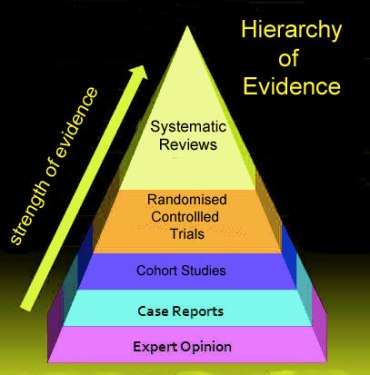From Lars Syll Nowadays many mainstream economists maintain that ‘imaginative empirical methods’ — especially randomized experiments (RCTs) — can help us to answer questions concerning the external validity of economic models. In their view, they are, more or less, tests of ‘an underlying economic model’ and enable economists to make the right selection from the ever-expanding ‘collection of potentially applicable models.’ It is widely believed among economists that the scientific value of randomization — contrary to other methods — is totally uncontroversial and that randomized experiments are free from bias. When looked at carefully, however, there are in fact few real reasons to share this optimism on the alleged ’experimental turn’ in economics. Strictly seen, randomization does
Topics:
Lars Pålsson Syll considers the following as important: Uncategorized
This could be interesting, too:
tom writes The Ukraine war and Europe’s deepening march of folly
Stavros Mavroudeas writes CfP of Marxist Macroeconomic Modelling workgroup – 18th WAPE Forum, Istanbul August 6-8, 2025
Lars Pålsson Syll writes The pretence-of-knowledge syndrome
Dean Baker writes Crypto and Donald Trump’s strategic baseball card reserve
from Lars Syll
 Nowadays many mainstream economists maintain that ‘imaginative empirical methods’ — especially randomized experiments (RCTs) — can help us to answer questions concerning the external validity of economic models. In their view, they are, more or less, tests of ‘an underlying economic model’ and enable economists to make the right selection from the ever-expanding ‘collection of potentially applicable models.’
Nowadays many mainstream economists maintain that ‘imaginative empirical methods’ — especially randomized experiments (RCTs) — can help us to answer questions concerning the external validity of economic models. In their view, they are, more or less, tests of ‘an underlying economic model’ and enable economists to make the right selection from the ever-expanding ‘collection of potentially applicable models.’
It is widely believed among economists that the scientific value of randomization — contrary to other methods — is totally uncontroversial and that randomized experiments are free from bias. When looked at carefully, however, there are in fact few real reasons to share this optimism on the alleged ’experimental turn’ in economics. Strictly seen, randomization does not guarantee anything.
Assume that you are involved in an experiment where we examine how the work performance of Chinese workers (A) is affected by a specific ‘treatment’ (B). How can we extrapolate/generalize to new samples outside the original population (e.g. to the US)? How do we know that any replication attempt ‘succeeds’? How do we know when these replicated experimental results can be said to justify inferences made in samples from the original population? If, for example, P(A|B) is the conditional density function for the original sample, and we are interested in doing an extrapolative prediction of E [P(A|B)], how can we know that the new sample’s density function is identical with the original? Unless we can give some really good argument for this being the case, inferences built on P(A|B) is not really saying anything on that of the target system’s P‘(A|B).
External validity and extrapolation are founded on the assumption that we could make inferences based on P(A|B) that is exportable to other populations for which P‘(A|B) applies. Sure, if one can convincingly show that P and P’ are similar enough, the problems are perhaps surmountable. But arbitrarily just introducing functional specification restrictions of the type invariance or homogeneity, is, at least for an epistemological realist far from satisfactory.
Many ‘experimentalists claim that it is easy to replicate experiments under different conditions and therefore a fortiori easy to test the robustness of experimental results. But is it really that easy? Population selection is almost never simple. Had the problem of external validity only been about inference from sample to population, this would be no critical problem. But the really interesting inferences are those we try to make from specific experiments to specific real-world structures and situations that we are interested in understanding or (causally) to explain. And then the population problem is more difficult to tackle.
In randomized trials the researchers try to find out the causal effects that different variables of interest may have by changing circumstances randomly — a procedure somewhat (‘on average’) equivalent to the usual ceteris paribus assumption.
Besides the fact that ‘on average’ is not always ‘good enough,’ it amounts to nothing but hand waving to simpliciter assume, without argumentation, that it is tenable to treat social agents and relations as homogeneous and interchangeable entities.
Randomization is used to basically allow the econometrician to treat the population as consisting of interchangeable and homogeneous groups (‘treatment’ and ‘control’). The regression models one arrives at by using randomized trials tell us the average effect that variations in variable X has on the outcome variable Y, without having to explicitly control for effects of other explanatory variables R, S, T, etc., etc. Everything is assumed to be essentially equal except the values taken by variable X.
In a usual regression context one would apply an ordinary least squares estimator (OLS) in trying to get an unbiased and consistent estimate:
Y = α + βX + ε,
where α is a constant intercept, β a constant ‘structural’ causal effect and ε an error term.
The problem here is that although we may get an estimate of the ‘true’ average causal effect, this may ‘mask’ important heterogeneous effects of a causal nature. Although we get the right answer of the average causal effect being 0, those who are ‘treated'( X=1) may have causal effects equal to – 100 and those ‘not treated’ (X=0) may have causal effects equal to 100. Contemplating being treated or not, most people would probably be interested in knowing about this underlying heterogeneity and would not consider the OLS average effect particularly enlightening.
Limiting model assumptions in economic science always have to be closely examined since if we are going to be able to show that the mechanisms or causes that we isolate and handle in our models are stable in the sense that they do not change when we ‘export’ them to our ‘target systems,’ we have to be able to show that they do not only hold under ceteris paribus conditions and a fortiori only are of limited value to our understanding, explanations or predictions of real economic systems.
Most ‘randomistas’ underestimate the heterogeneity problem. It does not just turn up as an external validity problem when trying to ‘export’ regression results to different times or different target populations. It is also often an internal problem to the millions of regression estimates that economists produce every year.
‘Ideally controlled experiments’ tell us with certainty what causes what effects — but only given the right ‘closures.’ Making appropriate extrapolations from (ideal, accidental, natural or quasi) experiments to different settings, populations or target systems, is not easy. “It works there” is no evidence for “it will work here”. Causes deduced in an experimental setting still have to show that they come with an export-warrant to the target population/system. The causal background assumptions made have to be justified, and without licenses to export, the value of ‘rigorous’ and ‘precise’ methods — and ‘on-average-knowledge’ — is despairingly small.
 RCTs usually do not provide evidence that the results are exportable to other target systems. The almost religious belief with which its propagators portray it, cannot hide the fact that RCTs cannot be taken for granted to give generalizable results. That something works somewhere is no warranty for us to believe it to work for us here or even that it works generally.
RCTs usually do not provide evidence that the results are exportable to other target systems. The almost religious belief with which its propagators portray it, cannot hide the fact that RCTs cannot be taken for granted to give generalizable results. That something works somewhere is no warranty for us to believe it to work for us here or even that it works generally.
The present RCT idolatry is dangerous. Believing there is only one really good evidence-based method on the market — and that randomization is the only way to achieve scientific validity — blinds people to searching for and using other methods that in many contexts are better. RCTs are simply not the best method for all questions and in all circumstances. Insisting on using only one tool often means using the wrong tool.
